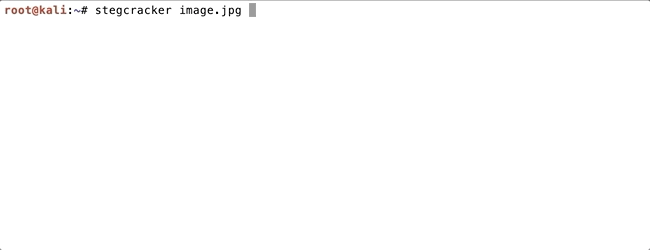StegCracker
Steganography brute-force utility to uncover hidden data inside files.
Please use Stegeek, newer and quicker.
Installation
python3 -m pip install stegcrackerUsage
stegcracker <file> [<wordlist>]Flags
StegCracker 2.1.0 - (https://github.com/Paradoxis/StegCracker)
Copyright (c) 2021 - Luke Paris (Paradoxis)
StegCracker has been retired following the release of StegSeek, which
will blast through the rockyou.txt wordlist within 1.9 second as opposed
to StegCracker which takes ~5 hours.
StegSeek can be found at: https://github.com/RickdeJager/stegseek
Steganography brute-force utility to uncover hidden data inside files
positional arguments:
file
Input file you think contains hidden information and wish to crack. Note: Stegcracker only accepts the following file types: jpg, jpeg, bmp, wav, au
wordlist
Wordlist containing the one or more passwords (one password per line). If no password list is supplied, this will default to the rockyou.txt wordlist on Kali Linux.
optional arguments:
-h, --help
Show this help message and exit
-o OUTPUT, --output OUTPUT
Output file location, this will be the file the data will be written to on a successful cracked password. If no output location is specified, the default location will be the same filename with ".out" appended to the name.
-t THREADS, --threads THREADS
Number of concurrent threads used to crack passwords with, increasing this number might lead to better performance. Default: 16
-c CHUNK_SIZE, --chunk-size CHUNK_SIZE
Number of passwords loaded into memory per thread cycle. After each password of the chunk has been depleted a status update will be printed to the console with the attempted password. Default: 64
-q, --quiet, --stfu
Runs the program in "quiet mode", meaning no status updates or other output besides the cracked password will be echoed to the terminal. By default, all logging / error messages are printed to stderr (making piping to other processes easier).
-v, --version
Print the current version number and exit.
-V, --verbose
Runs the program in "verbose mode", this will print additional debugging information (include this output when submitting bug reports). Cannot be used in conjunction with the "--quiet" argument.